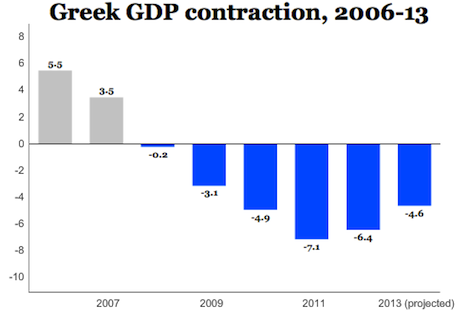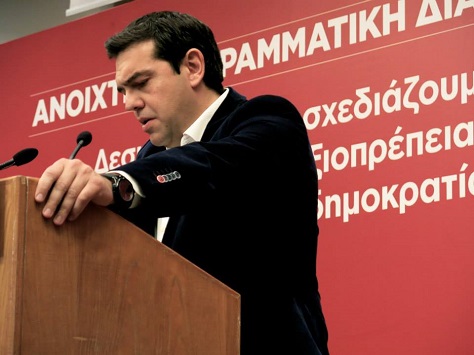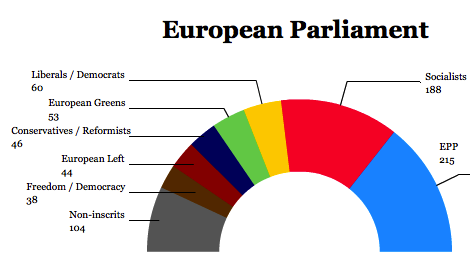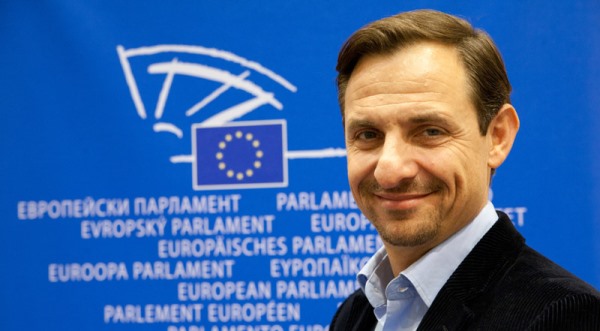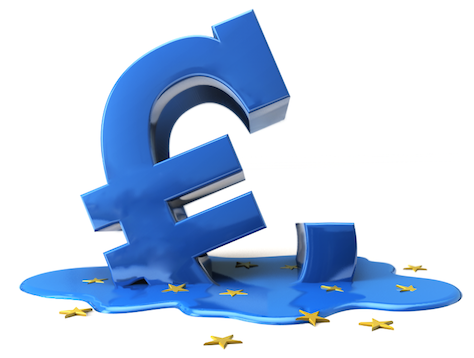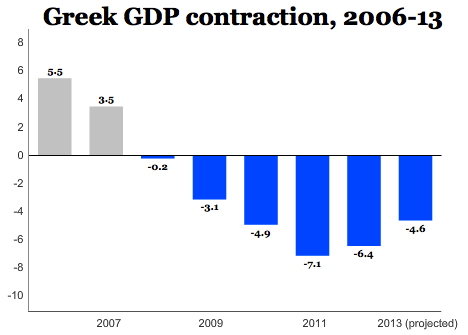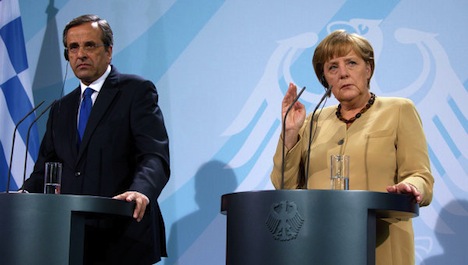At times this week, it has felt nearly like the European Union was brokering a bailout of Ukrainian debt, while working to negotiate a ceasefire with Greece.![]()
![]()
But as Greece’s new left-wing government and the Eurogroup, the collection of eurozone finance ministers, work over the weekend for a new Greek debt deal to float Greece’s treasury for the next two years (or thereabouts), there are glimmers of hope on both sides that a deal might possibly emerge. Negotiations continue as the February 28 deadline approaches, when Greece’s current bailout program is scheduled to end.
So what might that deal ultimately be? Above all, any deal that attempts to put Greece on a long-term path to prosperity needs to start from the notion that its debt burden of nearly 175% of GDP growth is simply unsustainable. You might not hear that in public from figures like German chancellor Angela Merkel, German finance minister Wolfgang Schäuble, European Commission president Jean-Claude Juncker or Eurogroup president and Dutch finance minister Jeroen Dijsselbloem, but it’s likely another story in private.
No matter how many cuts successive governments make to future budgets, the cost of servicing that debt will cripple its ability to provide the same level of public services to Greek citizens — especially at a time when unemployment remains so high. (Not everyone has the view, however, that the Greek debt burden is so incredibly unsustainable).
* * * * *
RELATED: A Russian bailout may have always been Plan B for Tsipras
RELATED: Seven lessons from the Greek election results
* * * * *
Here’s an outline of what to expect — perhaps as soon as early Monday morning: Continue reading What a Eurogroup-brokered deal with Greece might look like
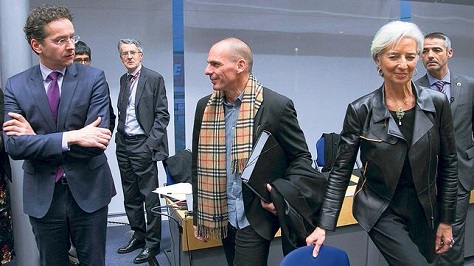
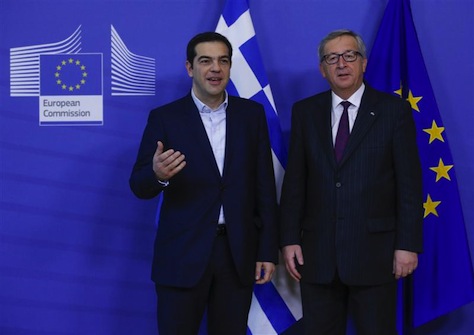
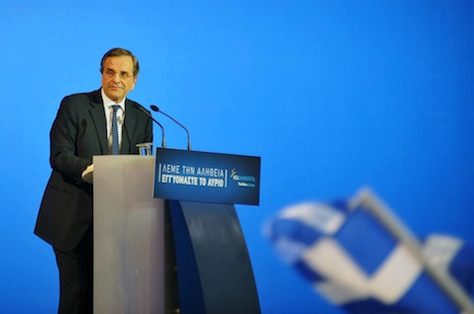
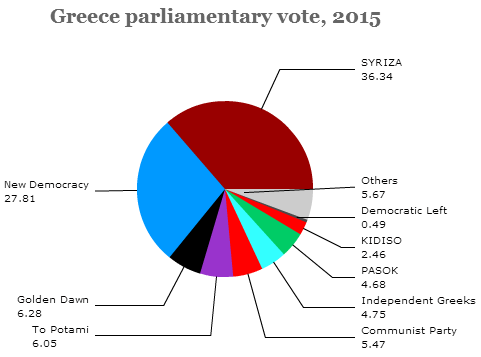
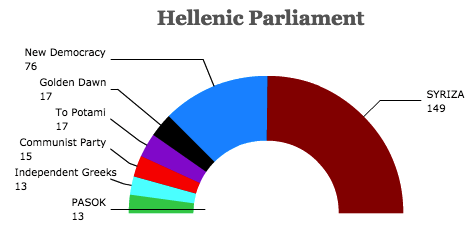 Despite a 50-seat ‘winner’s bonus’ for SYRIZA, which significantly outpolled New Democracy, the party fell just short of an outright majority in Greece’s unicameral Hellenic Parliament (Βουλή των Ελλήνων). Earlier, today, however, Tsipras
Despite a 50-seat ‘winner’s bonus’ for SYRIZA, which significantly outpolled New Democracy, the party fell just short of an outright majority in Greece’s unicameral Hellenic Parliament (Βουλή των Ελλήνων). Earlier, today, however, Tsipras 




